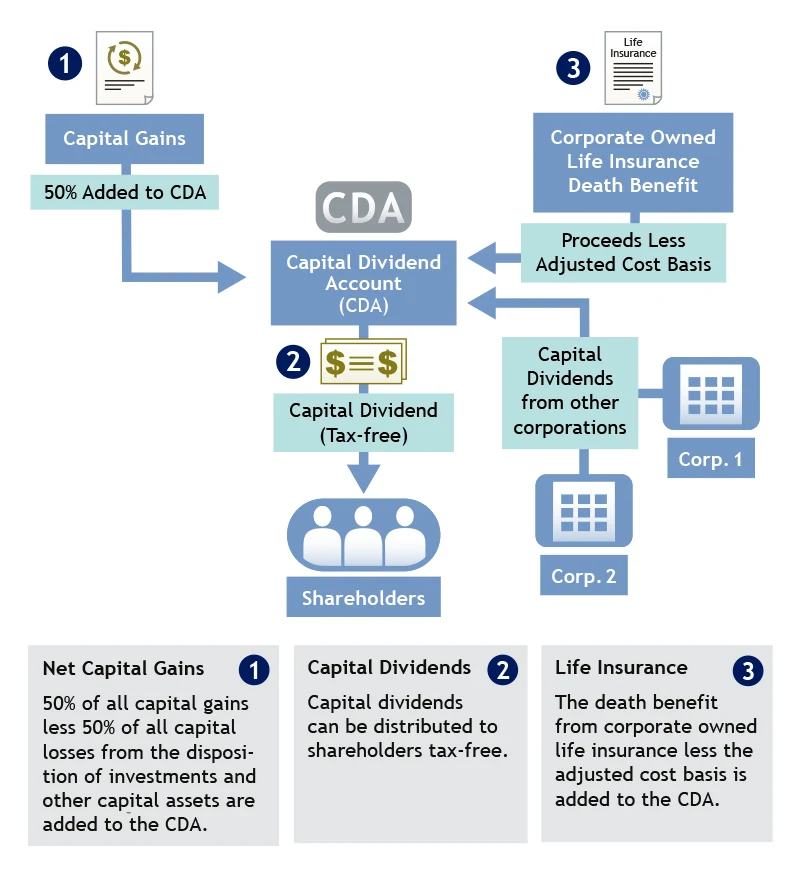What’s in Your Capital Dividend Account?
So you run your own business, things have been going well, but the more your business grows, the more complex your tax issues become. One often misunderstood tax concept is the Capital Dividend Account or CDA.
Capital dividends are simply a form of dividend, which can be paid out to Canadian shareholders tax-free. The caveat is that the amount of the capital dividend must not exceed the balance in the CDA.
What is the CDA?
What exactly is the CDA then you ask? Good question. The CDA is a notional account that is calculated by you and your accountant, and can be verified with the CRA. Notional meaning that it is not a literal account that you transfer funds in and out of, but rather a cumulative calculation that simply let’s you know the amount of capital dividends your corporation can pay out.
Capital Dividend Account =
(Non – Taxable portion of Net Capital Gains)
+ (Capital Dividends from other Corporations or Trusts)
+ (Proceeds of Corporate Owned Life Insurance less the Adjusted Cost Basis)
- (Capital Dividends paid)
The equation above shows the general calculation of the CDA, though the infographic below is likely an easier way to process the information. In words though, 50% of capital gains are added to the CDA, however it’s important to note that 50% of capital losses are subtracted from the CDA as well. Proceeds from life insurance received by the corporation as the named beneficiary are also added to the CDA less the adjusted cost basis (ACB) of the policy. Capital dividends received from other corporations or trusts are also added to the CDA. And of course, any capital dividends declared are subtracted from the balance.

Using the CDA to Your Advantage
Understanding the CDA can be very beneficial, especially when setting up a buy-sell agreement between you and your other shareholders, and when considering funding such agreements with corporate-owned life insurance policies. There are many advantages to having corporate versus personally owned life insurance, only one of which is to use the funds to purchase shares upon the death of a shareholder. The life insurance proceeds net of ACB are added to the CDA and can be paid out tax-free to the estate of the deceased shareholder in exchange for their shares of the corporation.
You can find out more about the benefits of corporate-owned insurance here.
Timing is Important
It’s also important to be aware of the potential pitfalls inherent in the CDA. Timing of the realization of capital losses and the payment of capital dividends is important. The overpayment of a capital dividend can result in steep tax penalties but can be avoided through careful tax planning. You should consult your tax advisors before deciding to pay a capital dividend.
Learning how to calculate and use your CDA can save your corporation a lot of money, and help you plan to ensure it will prosper long after you’re gone. A little careful planning today, can save a lot of heartache tomorrow.
